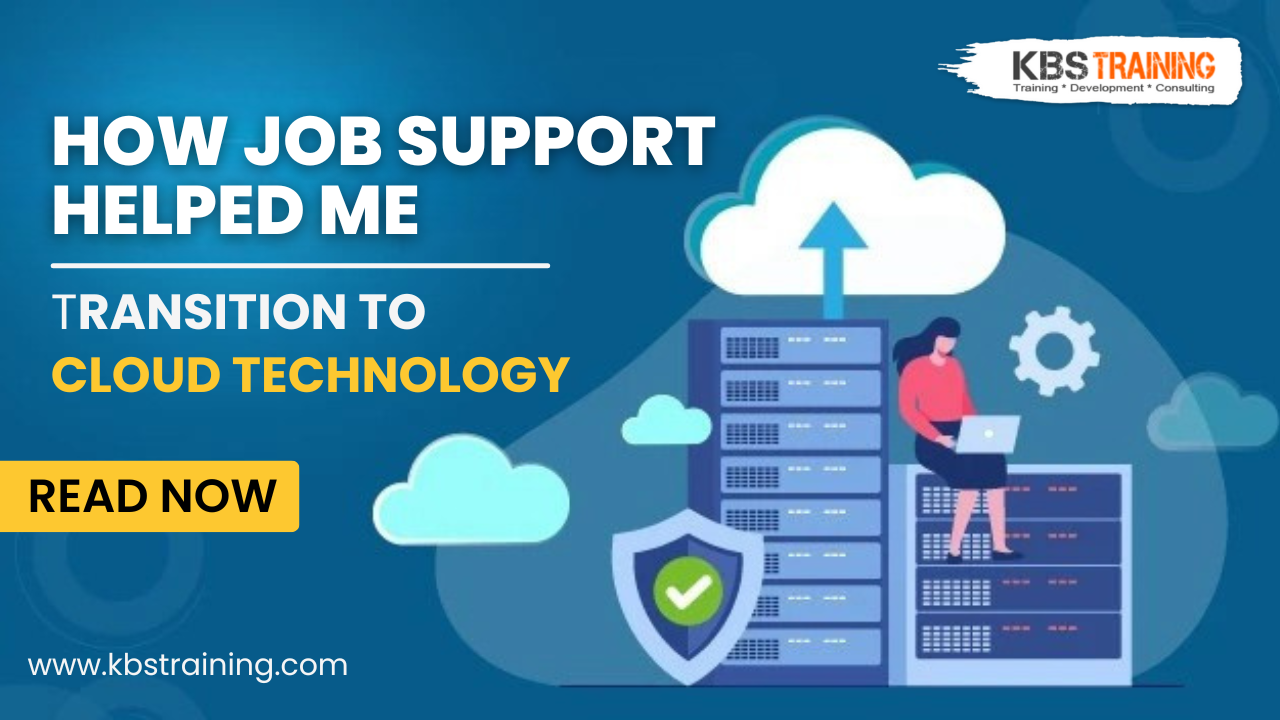Just a few years ago, the idea of building AWS infrastructure or deploying CI/CD pipelines felt way out of reach. I had the ambition, sure—but the leap from IT support to cloud engineering felt overwhelming.
Then I found job support services, and everything changed.
Today, I work confidently in cloud environments, deploy real solutions, and even mentor others making the same leap. Here’s my full story—and how job support for cloud transition made it possible.
🧩 Where I Started
My background was in traditional IT—think on-prem servers, patching, Active Directory. I could troubleshoot hardware issues and handle basic networking, but I knew the cloud was the future.
I started learning AWS and Azure through online courses and even earned a certification. But when it came to applying that knowledge to real projects, things got messy. I could pass a quiz but couldn’t debug a Lambda function in production. That gap between theory and execution was huge.
That’s when I turned to job support.
💡 What Is Job Support—And Why It Worked for Me
Job support is on-demand, real-time help from a working professional who guides you through your actual job tasks.
For someone like me, juggling a full-time job while trying to upskill in cloud, this was the perfect solution. I didn’t need a bootcamp. I needed someone to walk me through the real-world roadblocks that Google and Udemy couldn’t fix.
🔧 How Job Support Helped Me—Step by Step
1. Designing My First Real Cloud Architecture
My first big task was setting up a basic 3-tier application using EC2, RDS, and S3 on AWS.
With job support, I got help:
-
Mapping the architecture to business requirements
-
Selecting the right AWS services and configurations
-
Creating IAM policies and secure security groups
-
Using CloudFormation for repeatable deployments
I went from guessing to confidently presenting the solution to my team—in one day.
2. Troubleshooting Like a Pro
Working in the cloud means unexpected problems. I once had to debug a failing Lambda function tied to an SQS queue.
With my support expert, I learned to:
-
Set up logging using CloudWatch
-
Trace and fix errors through event triggers
-
Build retry logic to make the system more fault-tolerant
It wasn’t just about fixing the bug. It was a masterclass in real-world debugging.
3. Learning DevOps on the Job
As I dove deeper into AWS, I was exposed to DevOps tools like:
-
Terraform for Infrastructure as Code
-
Docker for containerization
-
Jenkins for CI/CD pipelines
Instead of watching videos and hoping I’d understand, I had a mentor helping me write my first Terraform module, build custom Dockerfiles, and set up Jenkins jobs that actually worked.
💪 The Confidence Boost Was Real
Beyond the technical skills, job support helped me develop confidence. I started volunteering for cloud projects, joining architecture meetings, and mentoring junior team members.
And no—no one judged me for using support. In fact, colleagues started asking who was helping me. Some even signed up for support themselves.
🔁 Tips for Others Making the Cloud Leap
If you’re eyeing a similar transition, here’s what worked for me:
-
Be honest with your support expert. They’re not there to judge—they’re there to help.
-
Take notes like it’s a live workshop. You’ll refer back to them often.
-
Mix support with self-study. Use sessions for real-world issues, not Googleable basics.
-
Be consistent. Even 1 hour/day adds up fast.
📍Where I Am Today
Today, I work as a Cloud Engineer, handling AWS deployments, writing Terraform code, and building CI/CD pipelines. I’ve gone from imposter syndrome to actual impact.
Would I have made it without job support? Maybe—but slower, messier, and with a lot more doubt.
Job support wasn’t a cheat code. It was an investment in accelerated learning, real growth, and long-term success.
🙋♂️ FAQs
Q: Is job support only for beginners?
Nope! It’s for anyone learning something new or navigating real-world projects.
Q: Can job support help with certifications?
Indirectly—yes. But it’s best for applying what you’ve learned in live environments.
Q: How much does job support cost?
Varies. Some offer hourly rates, others provide monthly packages. Totally worth the ROI.
Q: Do I have to tell my employer?
Not unless you want to. Many freelancers and full-timers use support privately.
🔗 Want to Learn More?
Consult Us Form: Click Here
Contact Us : WhatsApp
Register now for a FREE consultation to take your career to the next level
For Mail: Click Here | For More Info : Click Here
job support for cloud transition

